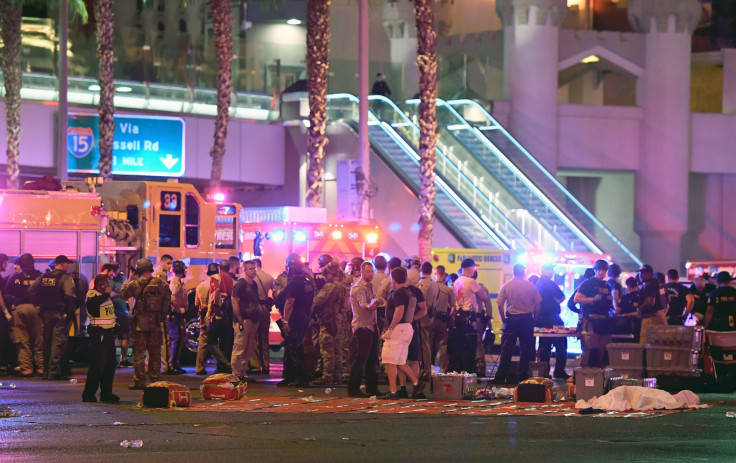The NRA Praised Nevada’s Most Powerful Lawmakers For Blocking Gun Control

In the years before Las Vegas became the site of the worst mass shooting in American history, Nevada’s most powerful Democrat and Republican played pivotal roles in blocking the government from regulating assault weapons.
While it’s unclear whether such regulations would have prevented the massacre that killed at least 58 people, both Nevada’s longtime U.S. Sen. Harry Reid (D) and Republican Nevada Gov. Brian Sandoval have been lauded by gun rights groups for making sure people can easily purchase deadly weapons in a state where “no permit is required to purchase most firearms,” according to the state’s legislature.
In 2009, for instance, the National Rifle Association praised Reid for using his position as Senate Majority Leader to block the effort to reinstate the 1994 ban on assault weapons, after it had been allowed to expire in 2004.
“Within five weeks of the inauguration, anti-gun Attorney General Eric Holder announced that the Obama Administration would seek to reinstate the expired and failed federal ‘assault weapon’ ban,” the NRA wrote in a letter to Nevada members. “The following day, your senior U.S. Senator and Senate Majority leader Harry Reid stated flatly that he ‘would oppose an effort [to] reinstate the ban if the Senate were to vote on it in the future.’ Such a forthright statement helped prevent the anti-gun media and groups from building any momentum on this important issue.”
Before retiring earlier this year, Reid in 2013 again played the key role in scuttling a renewed effort to reinstate the assault weapons ban.
On his campaign website, Reid bragged about the NRA’s support for his moves to stop the assault weapons ban — and listed other ways he had helped try to minimize the ban. Those included his previous votes “to kill an amendment to the Federal Death Penalty Act of 1989 which added 12 specific assault weapons to the list” and his votes against legislation “to ban the manufacture, sale and future possession of 19 semiautomatic assault weapons and copycat guns.”
Reid’s campaign website also touted the Democrat’s support for initiatives to preempt local gun regulations. In 2010, for example, he signed an NRA-backed amicus brief pressing the Supreme Court to invalidate Chicago’s gun ordinances.
At the state level, Sandoval and his fellow Republican lawmakers played a similarly aggressive role in protecting those who want to purchase military-style weaponry.
Sandoval signed legislation expanding concealed carry rights in Nevada and vetoed legislation that would have required universal background checks for firearms purchases. He also opposed a state ballot measure designed to better regulate the sale of weapons. That measure narrowly passed, despite the NRA spending millions to oppose it -- but it was then blocked by Nevada's Republican Attorney General Adam Laxalt.
In 2015, Sandoval signed preemption legislation that sought to prevent those convicted of domestic violence from accessing firearms, and also ended a decades-old gun registration system, prompting registered owners of weapons to celebrate by shredding their so-called “blue cards.” The Las Vegas Review-Journal congratulated lawmakers on the bill, noting that “state law was strengthened to preempt any local gun laws.” That same year, Sandoval made headlines for criticizing California Gov. Jerry Brown after the Democrat suggested — in the wake of the San Bernardino massacre — that dangerous weapons were flooding into California from neighboring states.
“As Governor, Brian Sandoval has consistently showed his commitment to the Second Amendment by signing important pro-gun reform legislation,” the NRA’s Chris Cox gushed in the group’s 2014 endorsement of the Republican incumbent. “We can count on Brian Sandoval to stand up for our constitutional freedoms in Nevada.”
Sandoval’s moves followed Nevada officials’ successful effort to shut down any debate over regulating assault weapons after a mass shooting in the Carson City area in 2012. During a meeting that year of the state’s Advisory Commission on the Administration of Justice, lawmakers voted to prohibit any discussion of an assault weapons ban, according to the Las Vegas Review-Journal.
Reid could not immediately be reached for comment, and a media representative for Sandoval did not immediately respond to requests for comment.
© Copyright IBTimes 2025. All rights reserved.






















